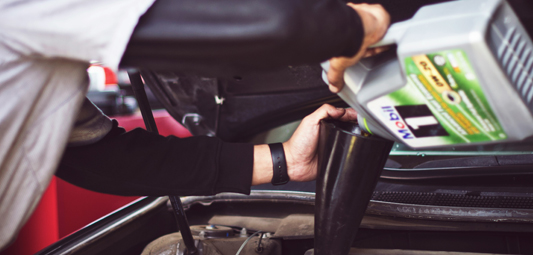Industrial lubricants such as hydraulic oil, industrial gear oil, turbine oil and grease are constantly evolving and developing to meet the requirements from all parties, such as the application needs of end users, the performance needs of equipment manufacturers, and even the requirements of health, safety and environmental regulations.

With the increasing demand for high-performance lubricating oil, while prolonging the service life and oil change cycle, lubricating oil is also required to reduce the unexpected shutdown time of key components as much as possible in some main applications. This means that chemical additives are becoming more and more important in the development of advanced lubricating oil technology. Due to the frequent extreme working conditions, the existence of pollutants and the higher expectation of output power and efficiency, the service environment of industrial lubricating oil is not optimistic. To meet these needs, it is necessary to continuously improve the additive technology.
When the end user puts forward higher requirements for lubrication performance, the equipment manufacturer designs the equipment with higher efficiency, smaller size and greater power, which directly affects the size of the oil tank - the required amount of lubricating oil becomes smaller. The smaller tank size and the higher output power required by the original equipment manufacturer will shorten the oil life and eventually reduce the service life of the equipment. These in turn run counter to the needs and expectations of the lubricant and grease market, which is developing towards longer life.
The most difficult technical problem in industrial equipment design falls on the lubricant technology providers. This requires that modern lubricating oil technology not only has the potential to prolong the oil change cycle, but also provides a higher level of protection for machinery and equipment while reducing downtime and improving efficiency.
All aspects of machine and equipment design are gradually affected by the environment and international regulations. The demand for higher efficiency, lower energy consumption and lower environmental impact has led to great improvements in equipment design and manufacturing in every industry branch.
In the context of the overall goal of continuously improving the environmental protection performance of lubricating oils and greases, and in addition, some regions require to reduce their dependence on petroleum based lubricants, they face the same requirements and challenges for lubricants.
Hydraulic oil
The main demand of end users of industrial hydraulic equipment is to minimize the expensive unplanned downtime and prolong the service life of their components as much as possible. Hydraulic oil technology maximizes the service life of equipment by increasing oxidation life, reducing sediment formation, and using reliable, durable and anti-wear chemicals. The previous industry specifications are far from meeting the requirements of today's use. Manufacturers of hydraulic systems and parts are starting to formulate new specifications. These new specifications put forward higher requirements for the wear resistance, thermal stability and compatibility of hydraulic oil.
Industrial gear oil
Industrial gear oil faces a variety of working conditions, which poses an unprecedented challenge to the formulation of lubricating oil. Similar to the hydraulic system, the design of industrial gear system increasingly requires larger load and smaller size, and the end users also have higher expectations for the service life of parts. This means that the lubricant needs to stay with common pollutants such as water, dust and solid pollutants for a longer time. The change of gear design metallurgy puts forward requirements for the anti pitting performance of gear oil. Micro pitting corrosion is the surface fatigue problem of gear set, and will eventually lead to the damage of gear.
New lubricating oil technology can maximize the protection for today's industrial gear applications. Moreover, it has excellent compatibility with sealing materials, paints and other components.
grease
Like liquid lubricants, greases will face similar hardware and environmental challenges. One of the driving forces to promote the development of the grease market is technical improvement. For example, some small parts are required to work at higher speed and greater load. In addition, grease technology that can prolong the maintenance interval, reduce grease consumption, and be more environmentally friendly and reliable is also required. This means that greases need to further reduce wear, improve stability, and address concerns about toxicity and chemical registration.
About us
Professional equipment
Qualification certificate
Company dynamic
Industry news
Add:Corso Torino, Turin,9,10098 Rivoli Piedmont, Italy
Email:server@fvpaf-oil.eu